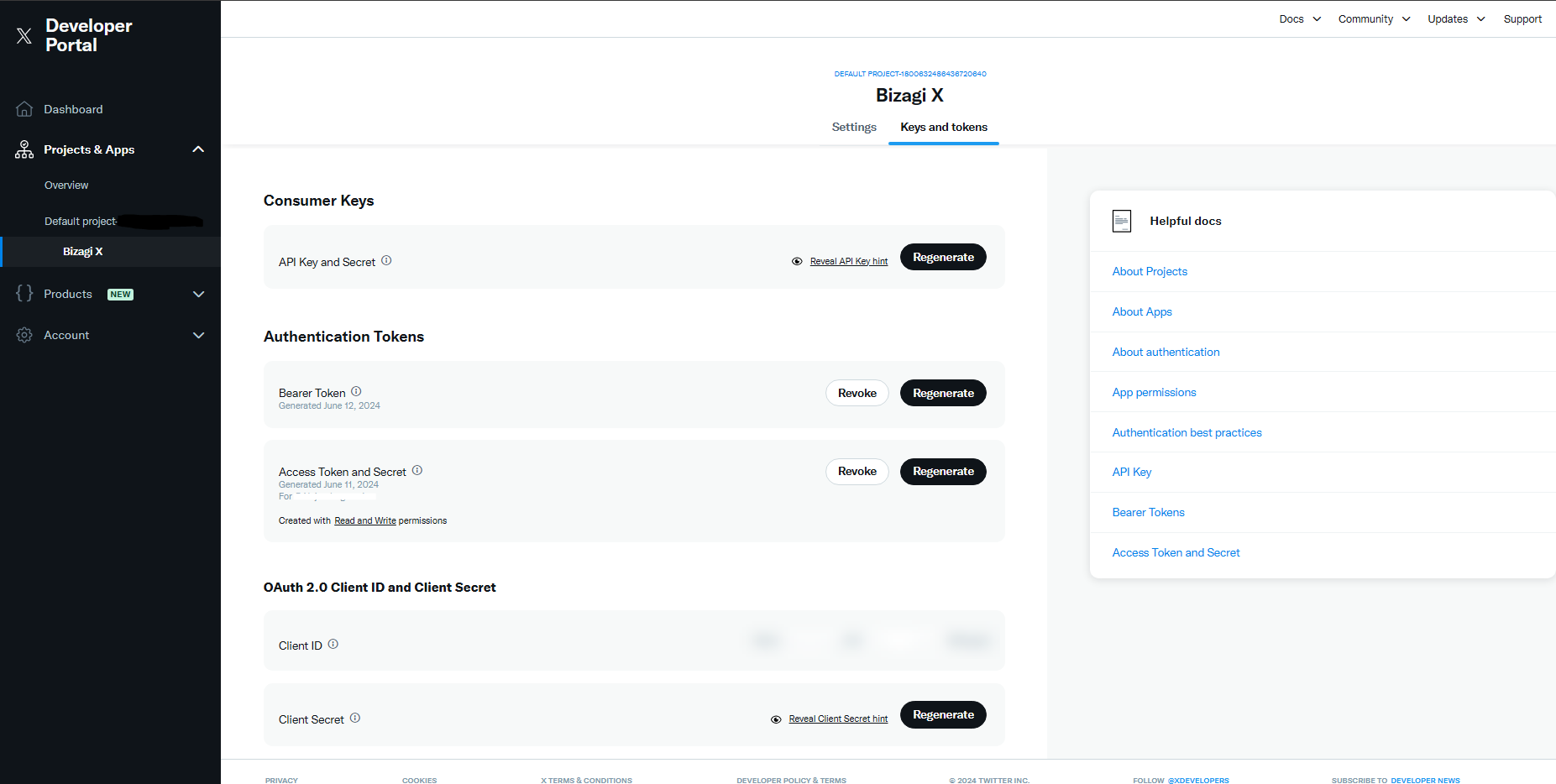Overview
The X connector for Bizagi is available for download at Bizagi Connectors Xchange.
Through this connector, you will be able to connect your Bizagi processes to a www.X.com account in order to use the social networking X services.
For more information about this connector's capabilities, visit Bizagi Connectors Xchange.
Before you start
In order to test and use this connector, you will need:
1.Bizagi Studio previously installed.
2.This connector previously installed, via the Connectors Xchange as described at https://help.bizagi.com/platform/en/index.html?Connectors_Xchange.htm, or through a manual installation as described at https://help.bizagi.com/platform/en/index.html?connectors_setup.htm
3.An account at www.X.com, as well as a developer profile at X (https://developer.X.com/).
How to create a developer profile
If it is the first time that you enter the X Developer Portal and you do not have a developer account, you must follow these steps:
1. Go to the following link: https://developer.X.com/ and create a developer account if you don't already have one.
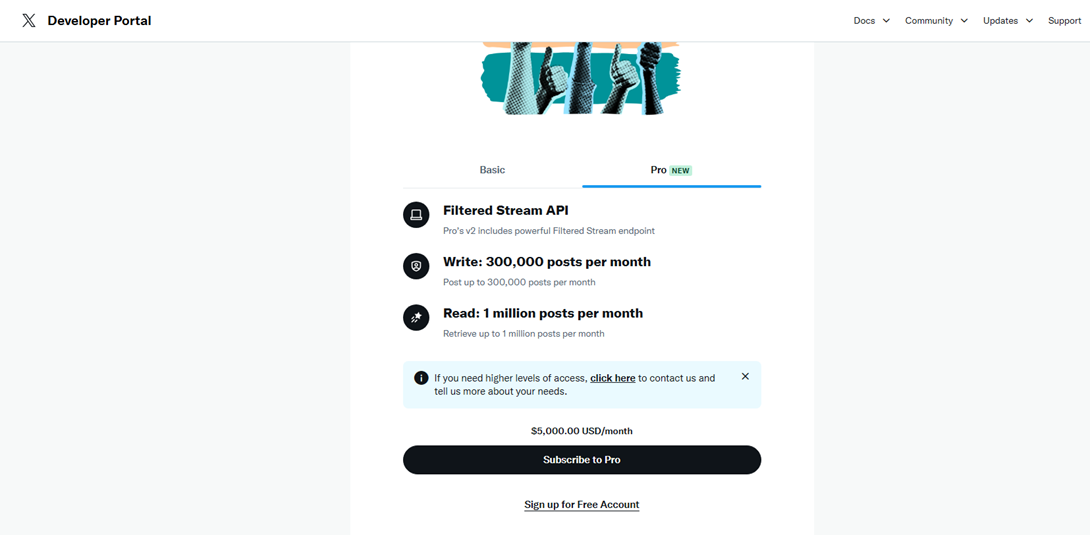
2. Once you have created your profile, you can log in from X's official website > Sign in.

3. If it is your first time using the X Developer Portal, you must fill and accept the Developer Agreement & Policy.
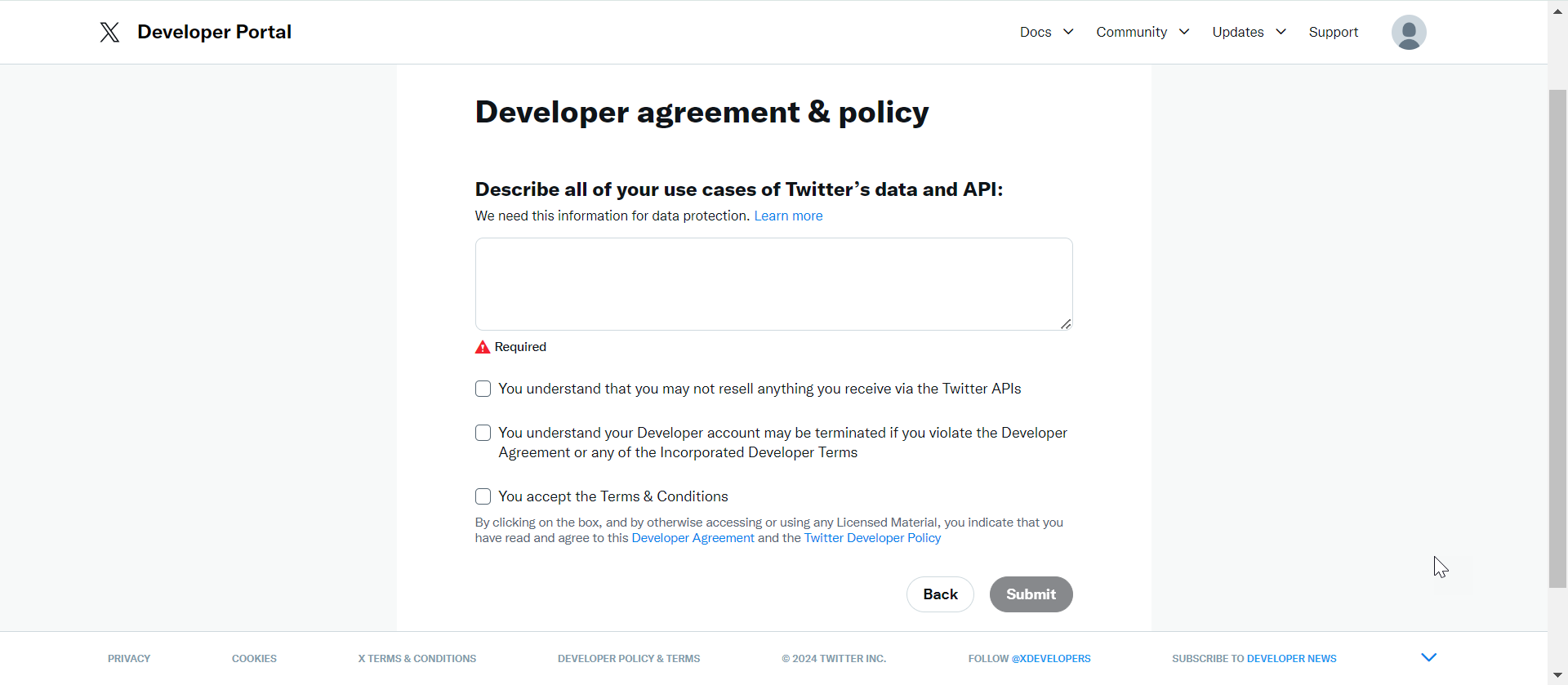
4. Then, enter the dashboard.
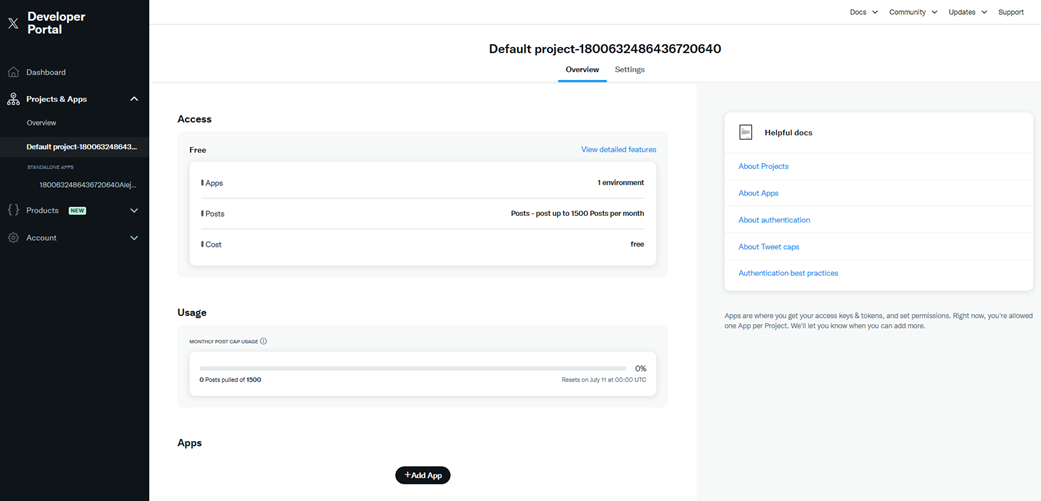
5. Once logged in, the Developer Portal option appears on the left side of the profile so you can start configuring your application and application credentials.
Steps to create a X app
1. Once you have entered the dashboard, click the +Create Project button.
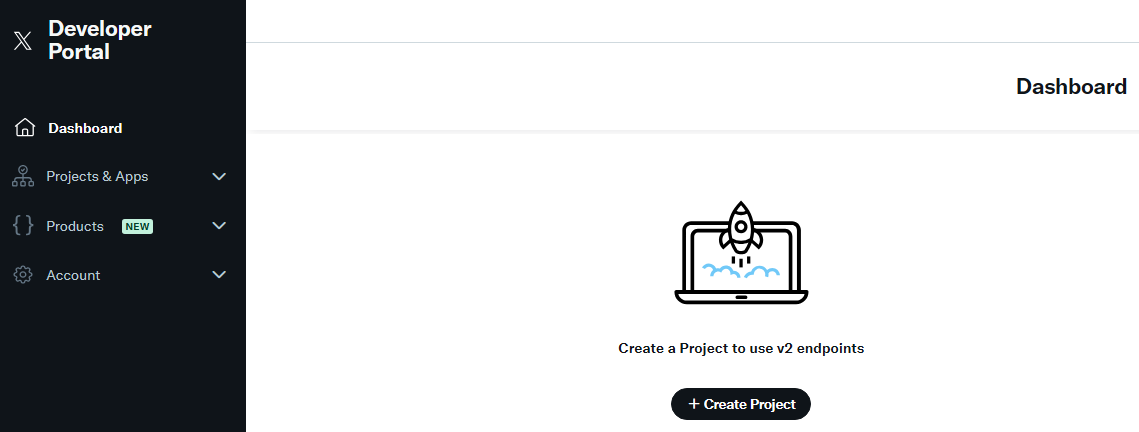
Then, give a name to your project by typing it in the text box that appears.
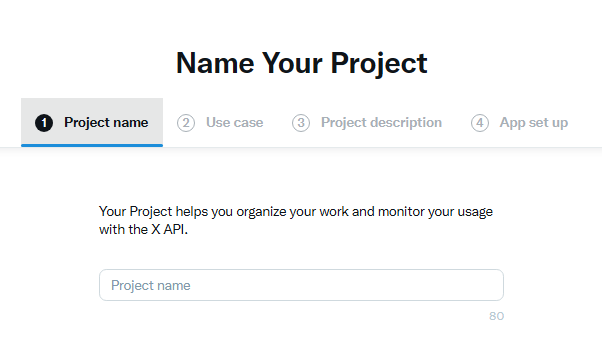
Then, select a use case for your API.
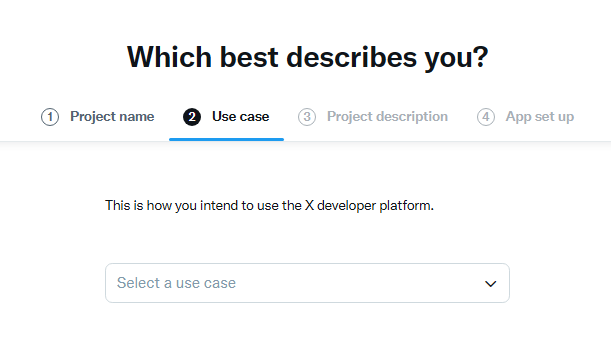
Afterwards, enter a short description for your project.
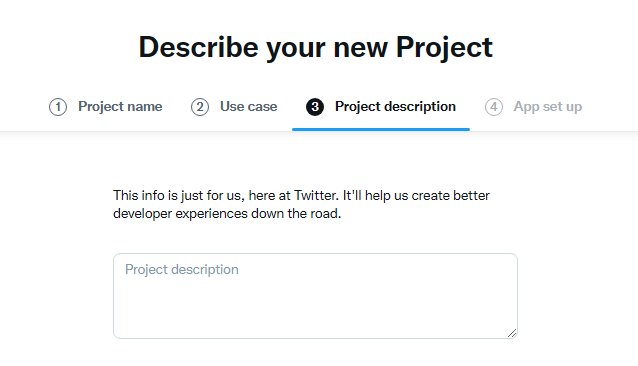
Finally, click Create a New App or Add an Existing App in case you have already created one.
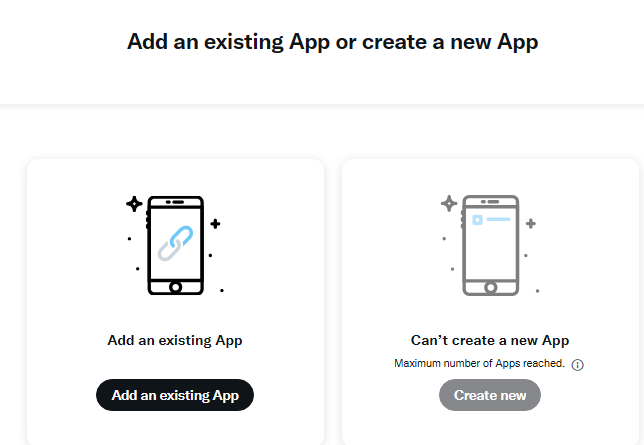
2. If you create a new app you must enter a name and then the keys and tokens.
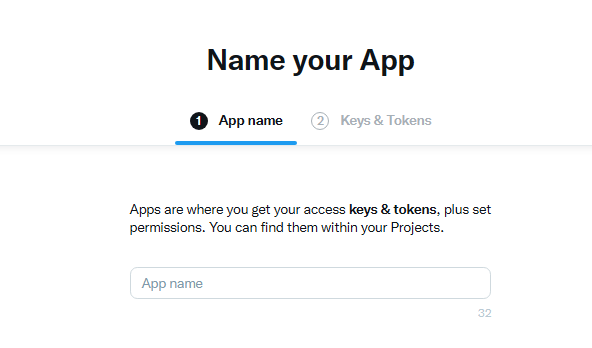
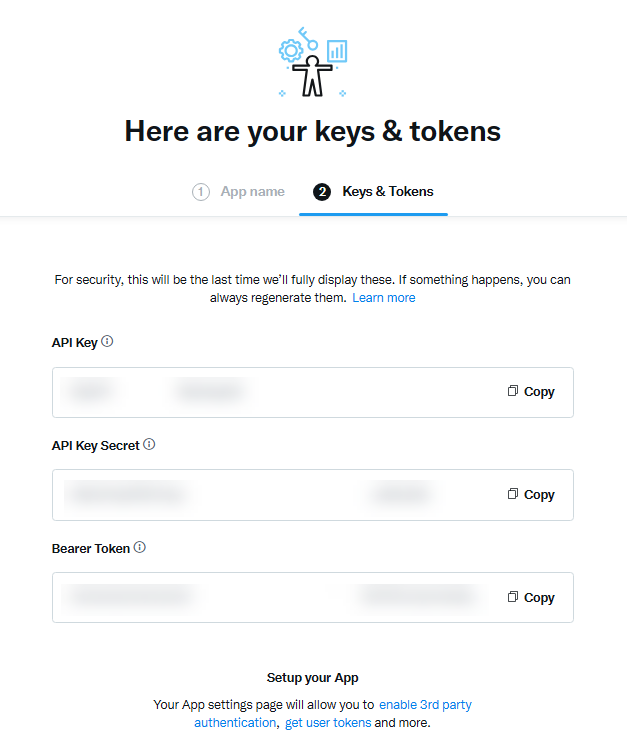
Then, you must set up your application. To do so, click the Set Up button in the dashboard.
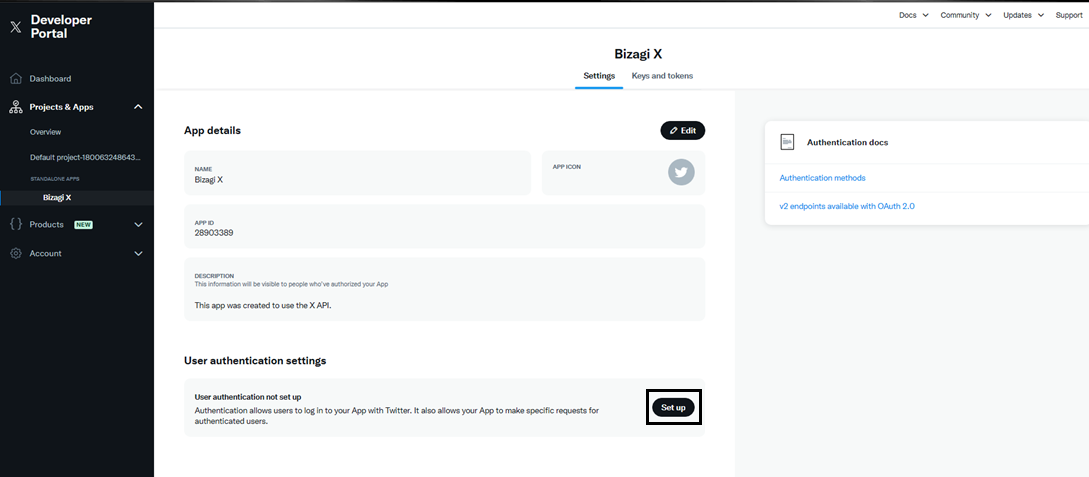
Then, select the option Read and Write in the App Permissions section.
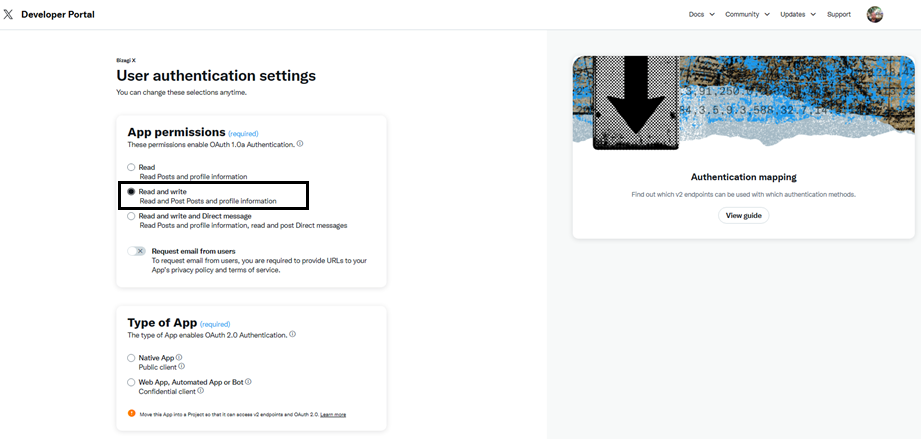
In the Type of App section, select the Native App option. In the fields marked as required type the following URL: https://bizagi.com. Then, click Save.
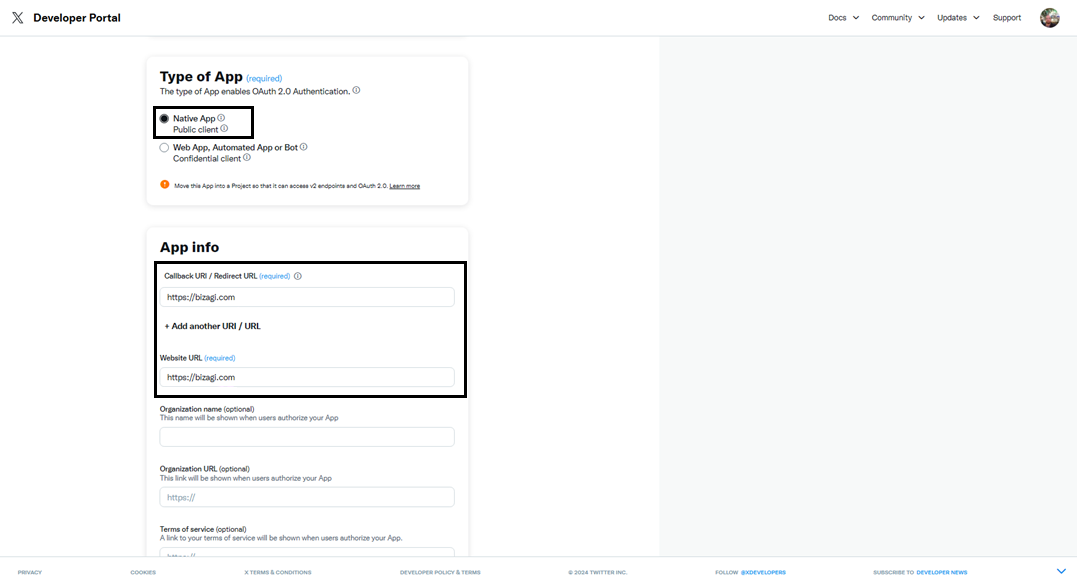
|
Bear in mind that depending on the type of authentication you have access to different access key in the Keys and tokens section. If you are using OAuth 1.0, you must use the Access Token and the Access Secret, and for OAuth 2.0, you must use the Bearer Token.
|
|
You can check the configuration here. |
How to obtain the authentication credentials
1. In the Settings tab, you will find two sections: App details and User authentication settings. In the first one, you can modify the application name and customize it. In the second, to configure the authentication credentials, click Edit.
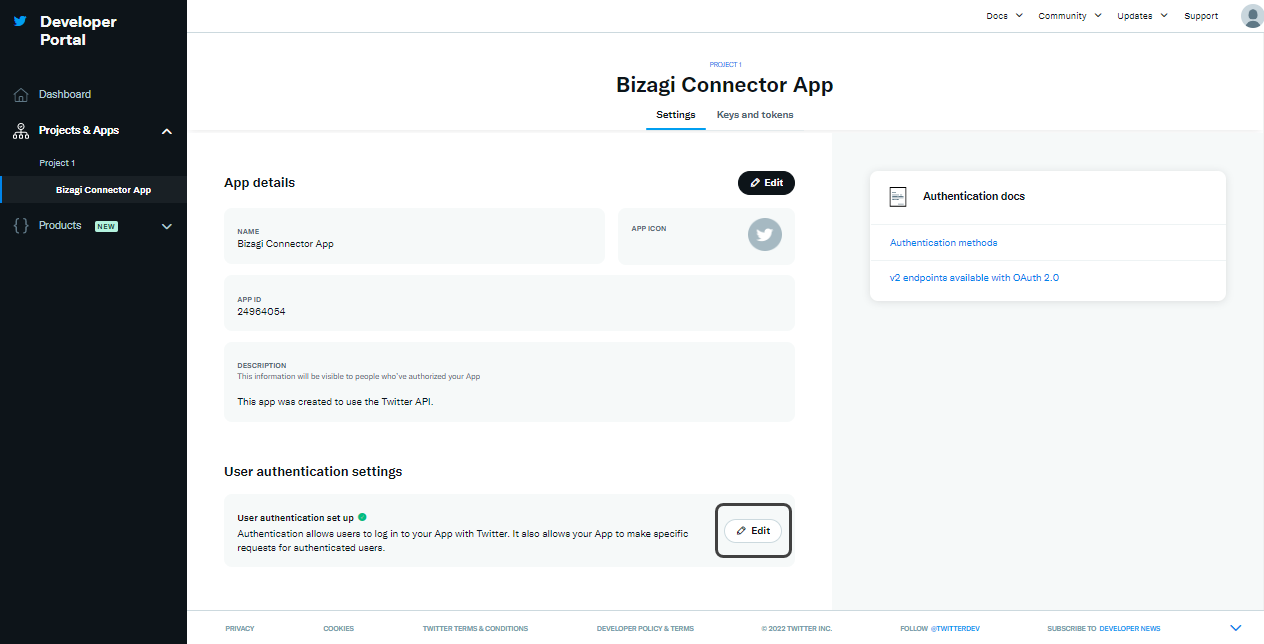
2. For Oauth 1.0a, you must select the Read and write option in the App permissions section.

3. In the App info field, in the fields marked as mandatory, type the following URL: https://bizagi.com and click Save once the procedure is completed.
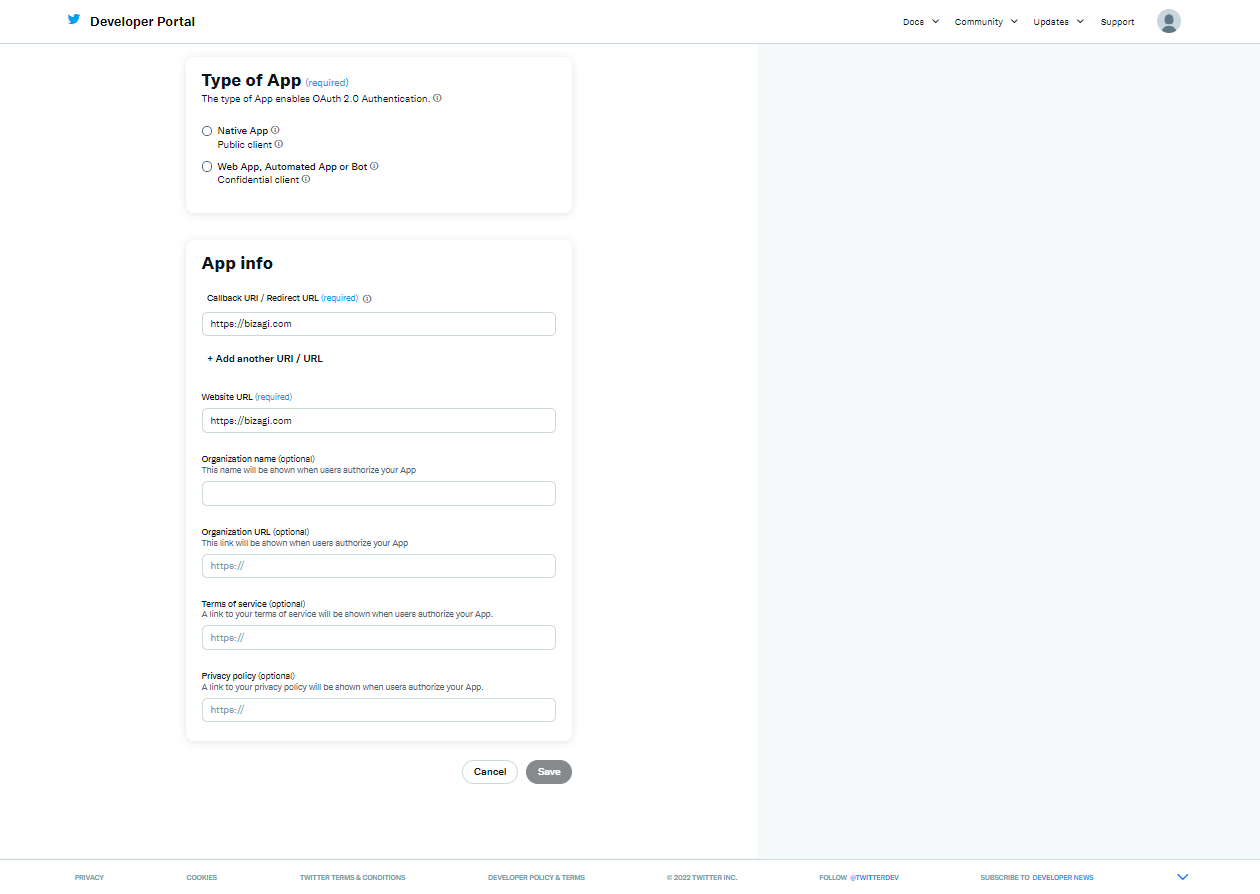
3. Depending on the type of authentication you are going to use, in the Keys and tokens tab, you have access to the Consumer Keys (API Key - API Secret) and the Authentication Tokens.
In Authentication Tokens, for Oauth 1.0a, you must use the Access Token and Access Secret and for Oauth 2.0, you must use the Bearer Token.
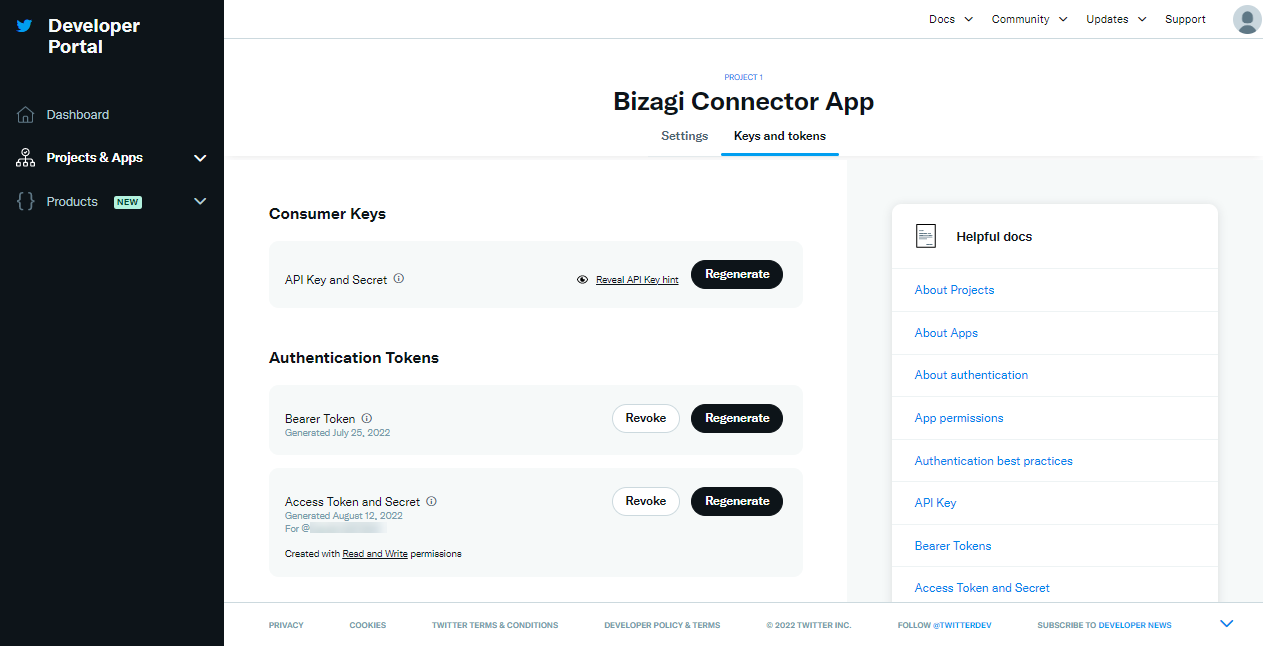
And your app will end up being granted to access your account, which is verifiable at https://developer.X.com/en/portal/dashboard.
Configuring the connector
In order to configure the connector (i.e its authentication parameters), follow the steps presented at the Configuration chapter in https://help.bizagi.com/platform/en/index.html?connectors_setup.htm
For this configuration, consider the following authentication parameters:
•Authentication method: Custom.
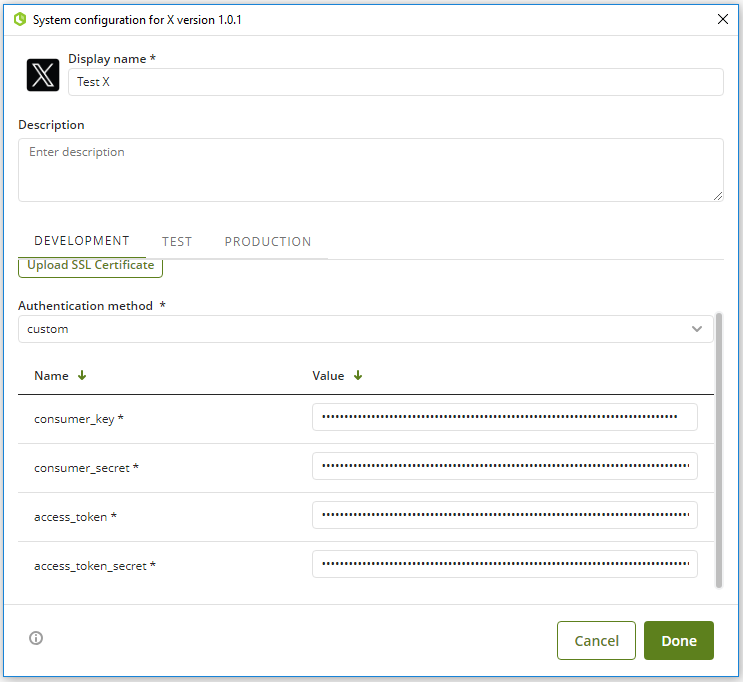
•Consumer key: The API key of your specific X app (as given at https://apps.X.com/app/[your_app_ID]/keys).
•Consumer secret: The API secret of your specific X app (as given at https://apps.X.com/app/[your_app_ID]/keys).
•Access token: Your X account's access token (as given at https://apps.X.com/app/[your_app_ID]/keys).
•Access token secret: Your X account's access token secret (as given at https://apps.X.com/app/[your_app_ID]/keys).
|
Note that you will need to previously authorize your X app at your X account (https://developer.X.com/en/portal/dashboard). |
Using the connector
This connector features three available methods of X's services: Creating or deleting posts and getting an authorized user..
To learn overall how/where to configure the use of a connector, refer to https://help.bizagi.com/platform/en/index.html?Connectors_Studio.htm.
When using the connector, make sure you consider the following details for each of the available methods.
Creating a new post
Post an status update in X (i.e, a new post).
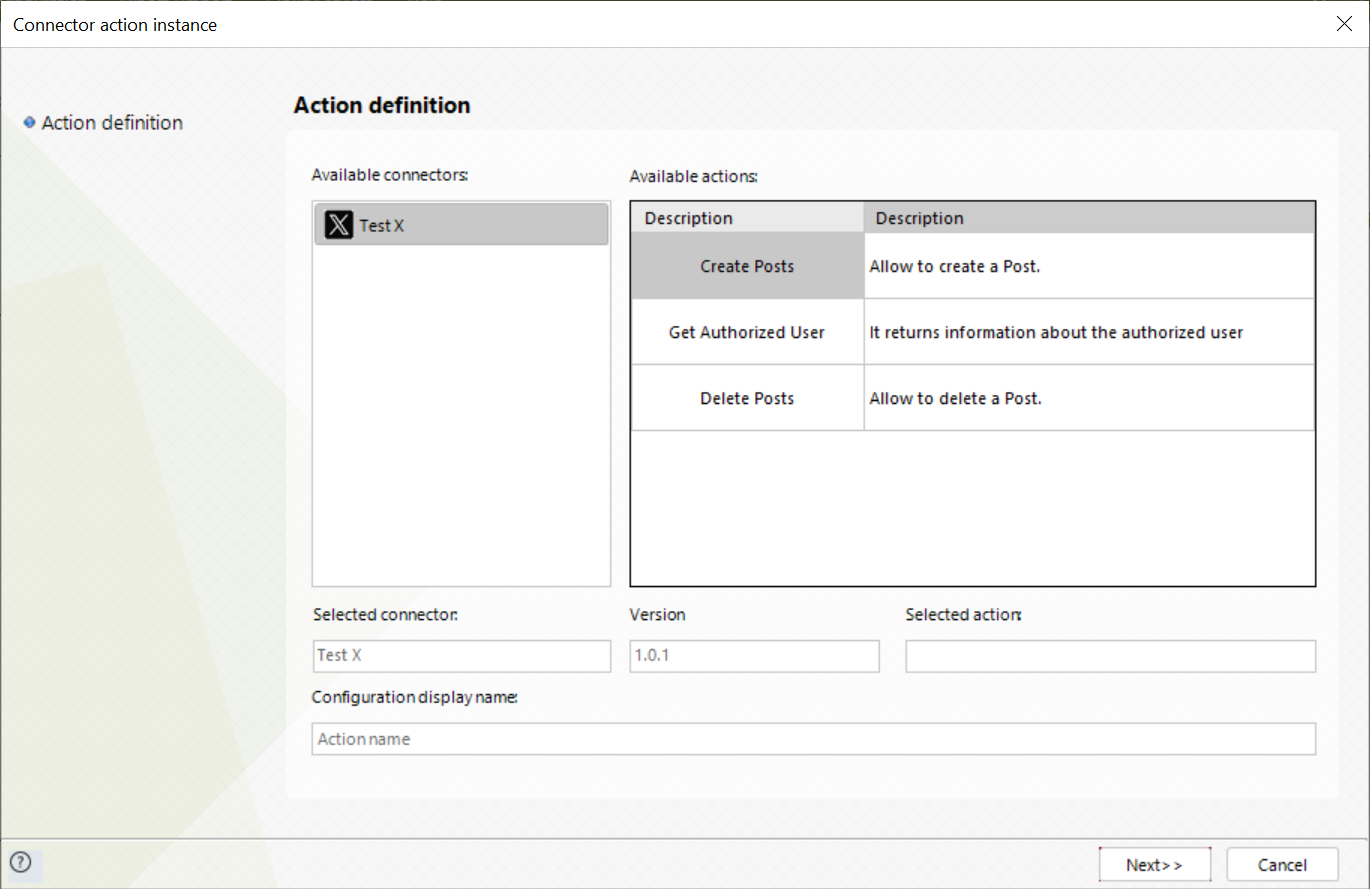
To configure its inputs, consider:
•text: The actual post content. Regular post rules apply, such as the maximum number of characters.
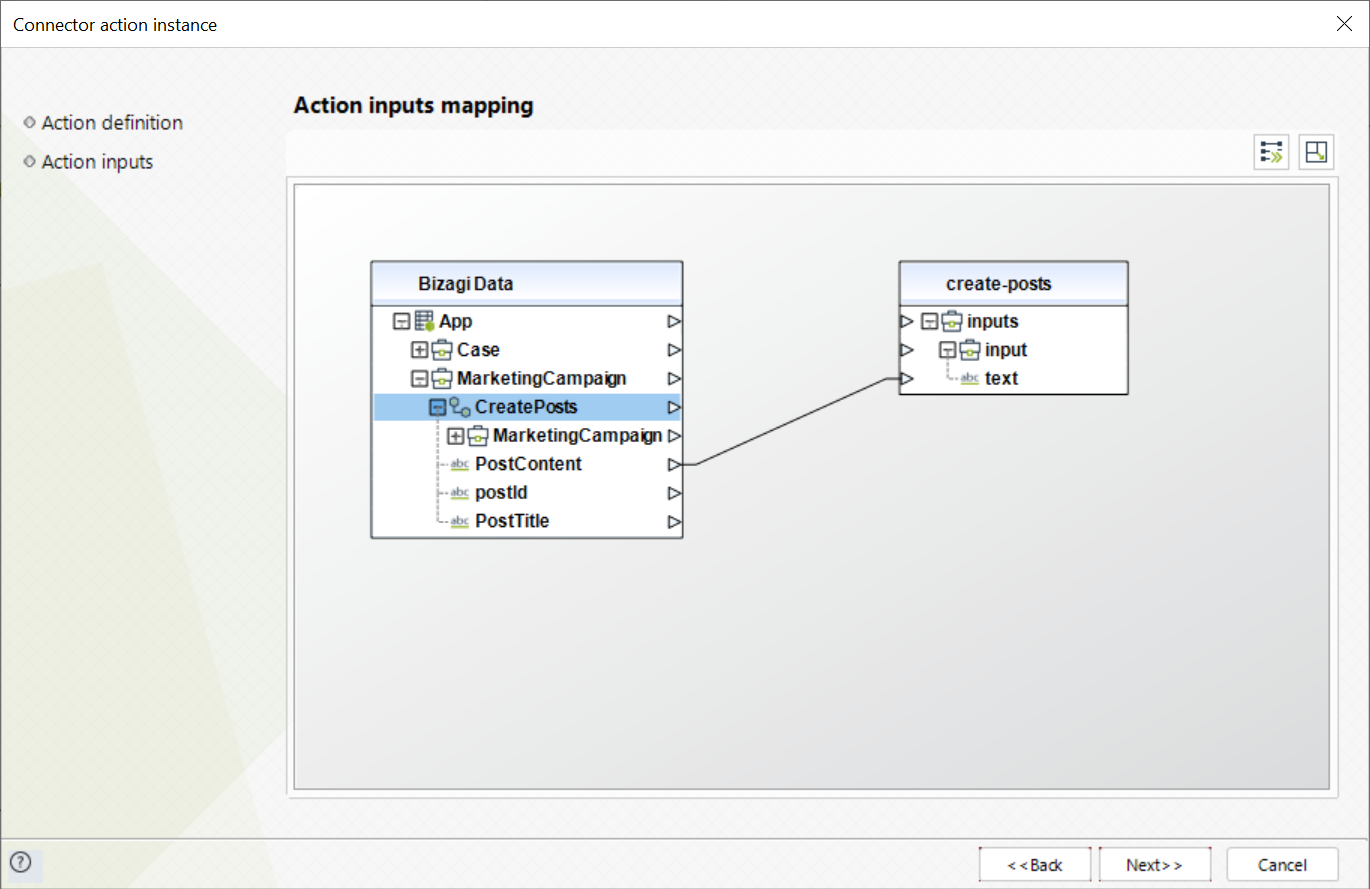
It is not necessary to map any outputs for this action.
Delete a post
Delete a given post.
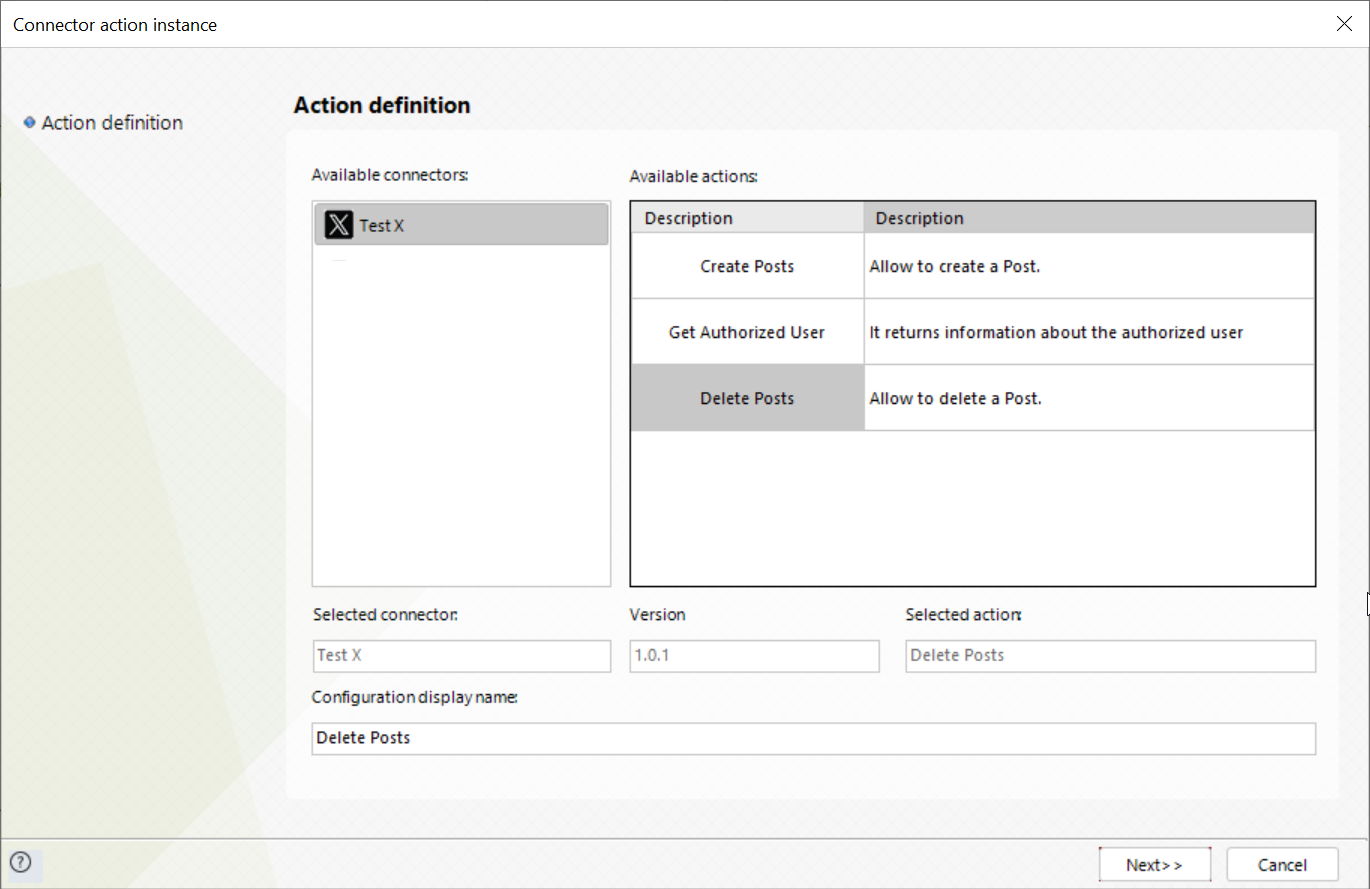
To configure your inputs, map as follows:
•id (string): id that corresponds to post you want to delete.
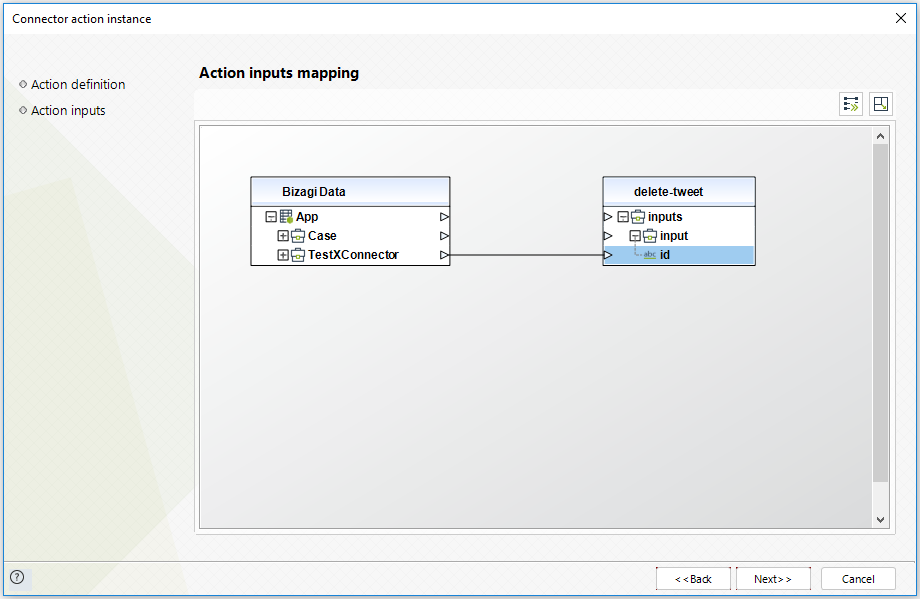
To map the outputs and start tests, map the attributes as follows:
•deleted (boolean): Confirms the deletion of the post.
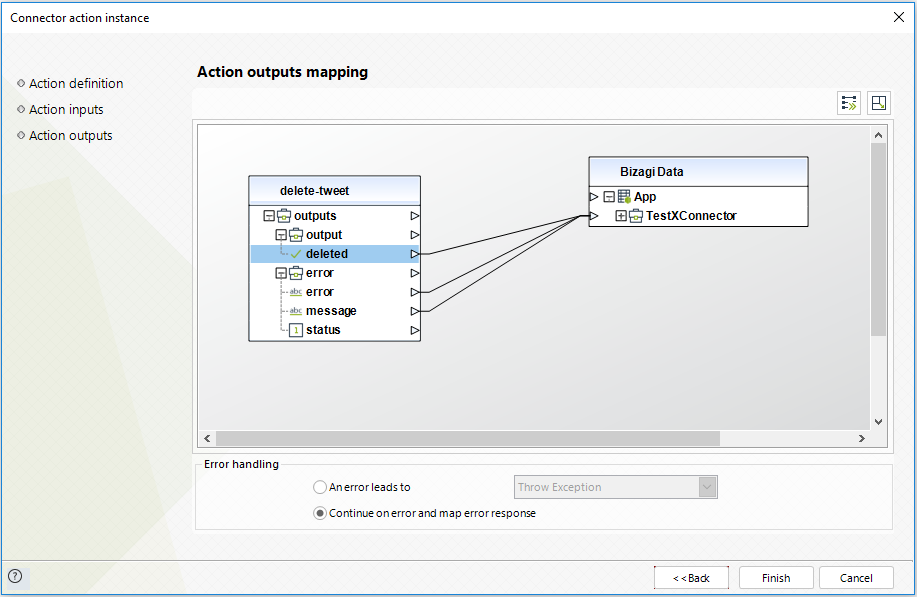
Get Authorized User
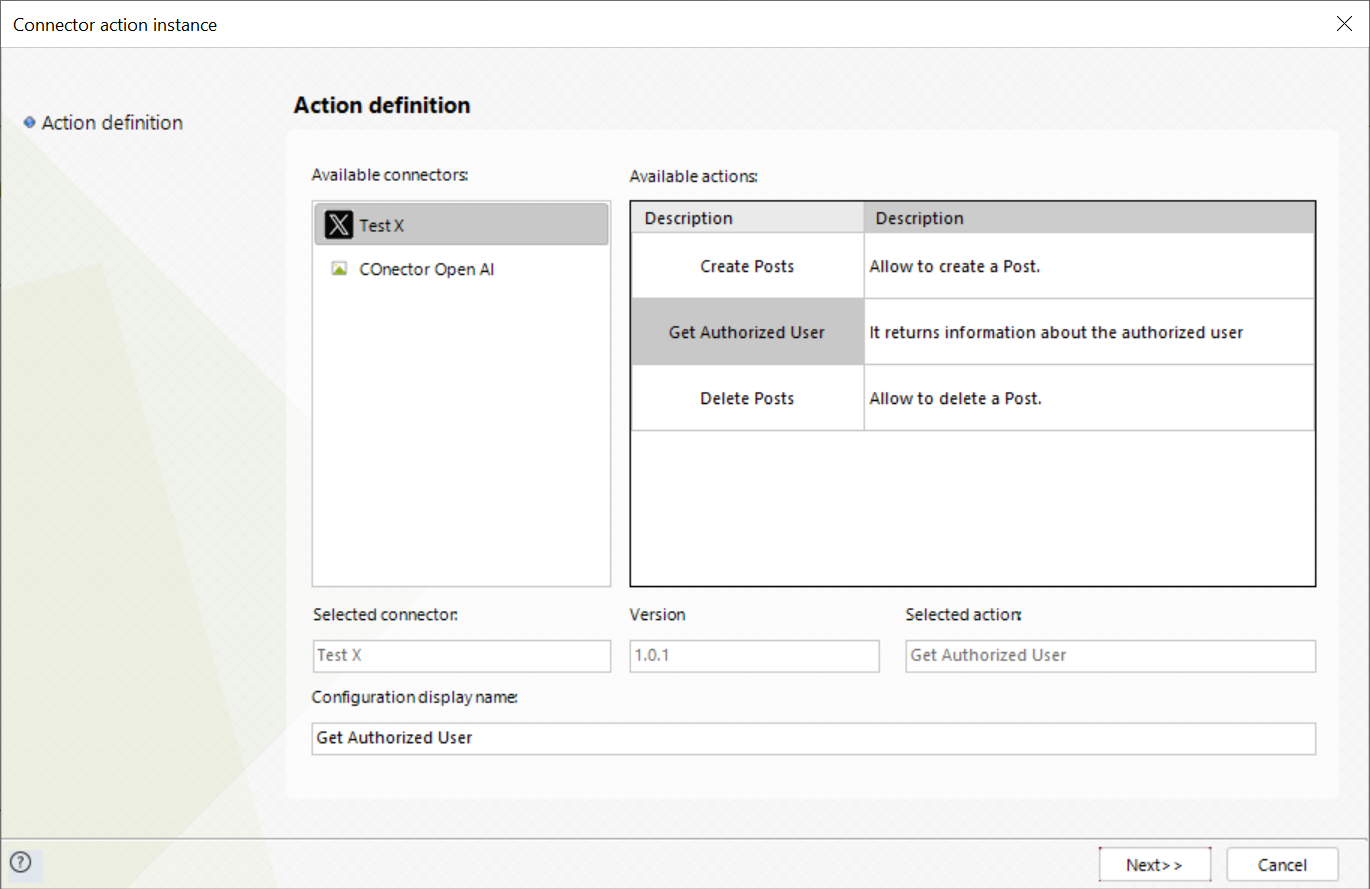
This scenario does not require inputs. Nevertheless you must map the following outputs:
• id (string): authorized user's id.
• name (string): name of the authorized user.
• username (string): configured username.
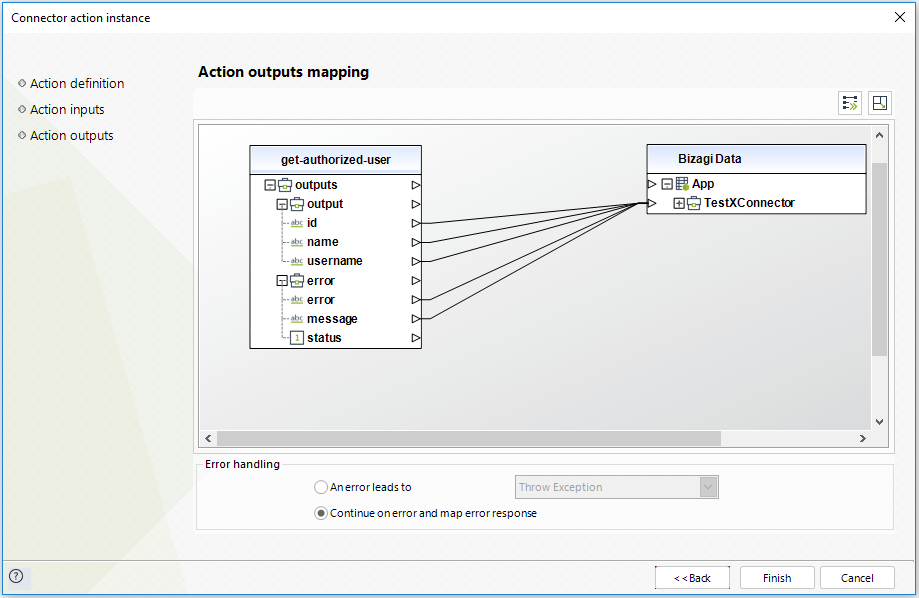
Last Updated 9/3/2024 11:21:41 AM

